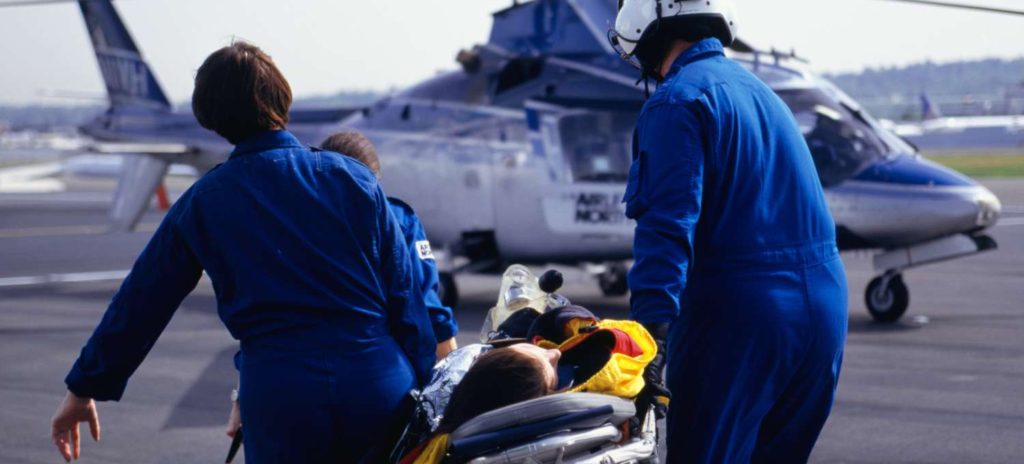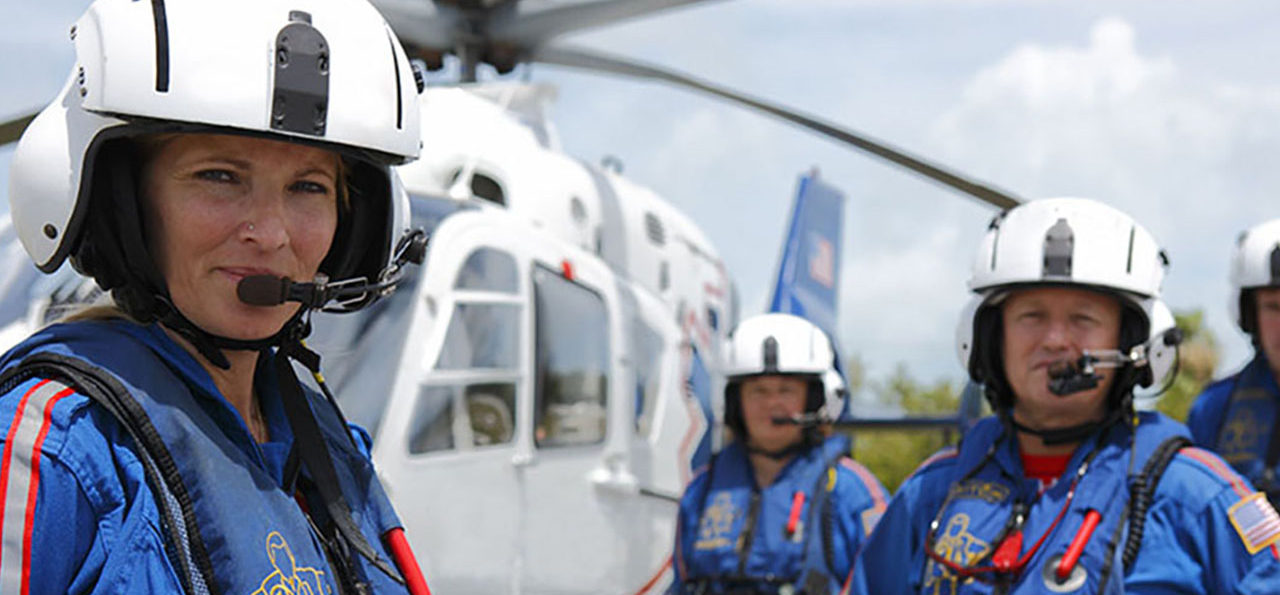Planes, helicopters, or jets. All of these flight options are used by medical professionals to get transport patients to a nearby hospital for care. Aircrafts are often used in emergency situations to get patients to the best hospital as quickly as possible. And who is up in the air, taking care of patients as they quickly fly to the best care facility? Flight nurses.
Learn more in this guide about what it takes to become a flight nurse.

What Is a Flight Nurse?
Registered nurses who are looking for a unique and exciting environment may find a passion for becoming a flight nurse. Sometimes called an aircraft, helicopter, or transport nurse, flight nurses have many of the same responsibilities as registered nurses, but take it to a new level as they deal with offbeat and interesting patients from the air.
Different types of flight nursing job tend to be similar, but there is one important decision flight nurses need to make in regards to their career. Flight nurses have the option to choose a civilian or military career path, and those type of career positions are considerably different.
Civilian flight nurses typically work for public or private hospitals or clinics. They often are part of Life Flight and other transport operations to move patients to a better facility for their care. This can involve transporting newborn babies to a different hospital, moving patients from emergency situations to a hospital, transferring patients to a new location, working with organ donation, and more.
Military flight nursing involves nurses who are enlisted in the Air Force. Their role is to give nursing care to military members while transporting them to a different location. This may be transporting them away from a dangerous situation to a field hospital, transferring them to a new location that is better equipped to care for them, and more. Military flight nurses Work specifically with military members who often have battle injuries, and the care they give is vastly different than civilian flight nurses.
What Does a Flight Nurse Do?
Flight nurses take the responsibilities of an RN to new heights—literally. They are the ones on board the jet or helicopter, taking care of patients as they fly. Flight nurses are responsible for checking vitals, keeping records, administering medication, performing medical procedures, and more. Often aircrafts will have flight physicians that nurses assist in caring for patients, but in the event that there is no flight physician on board, a flight nurse takes charge. Flight paramedics may help flight nurses in their work in caring for patients while they are on the aircraft.
Flight nurses are also in charge of working with the medical crews on the ground so that everyone is on the same page when it comes to care. They are usually in constant communication with the ground crews to ensure that when they land, the patient can be immediately transferred to their care.
Flight nurses also have to ensure that there is proper medical equipment ready to take care of the patient onboard the plane or helicopter. Flight nurses are responsible for many of the same things that emergency nurses are responsible for, but there is an added factor of increased time pressure, more emergent situations, and air travel involved for a flight nurse.
What Education Does a Flight Nurse Need?
The educational requirements for flight nurses begin with becoming an RN. WGU offers a prelicensure nursing degree that gives students the chance to get their RN and BSN at the same time. Becoming an RN is the crucial first step to becoming a flight nurse, as flight nurses require licensure in order to qualify for flight jobs.
While you don’t have to get a degree to do this, most hospitals are hoping to get magnet status which involves having nurses that are licensed AND have a bachelor’s degree. Getting a bachelor’s degree in nursing is a great way to make yourself more competitive for nursing jobs in a hospital. Similarly, a master’s degree in nursing can give you that additional edge over competition, and help you be qualified and credentialed for raises and promotions in a hospital or clinic. Beyond a master’s degree, a post-master’s certificate in leadership & management can be beneficial. Flight nurse hopefuls may find that a bachelor’s or master’s degree helps them be more qualified and competitive for transport nursing positions.














